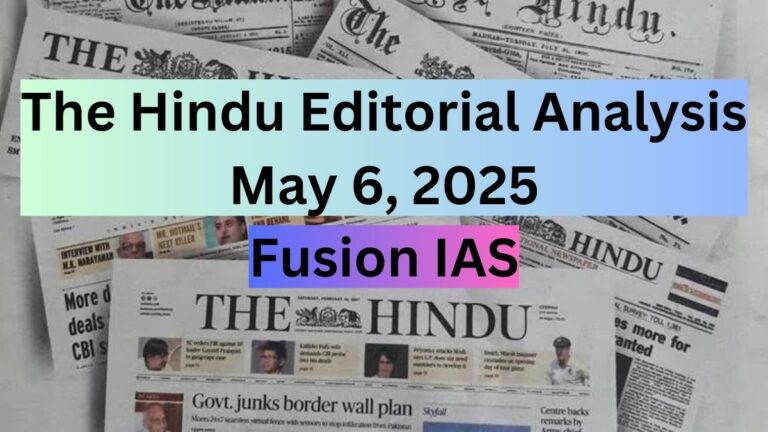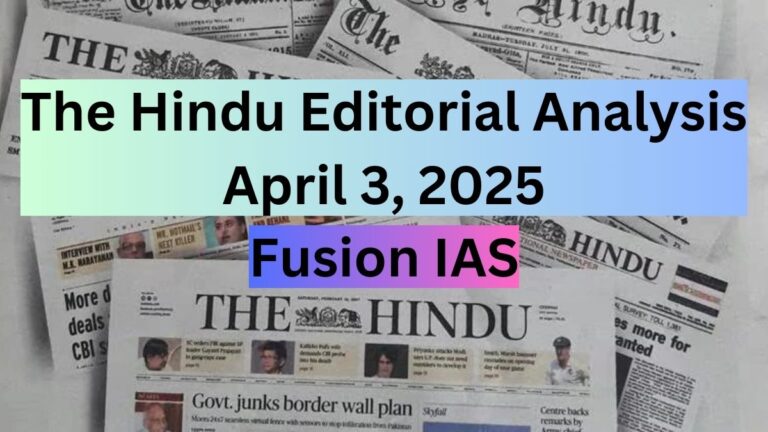
The Hindu Editorial Discussion is crucial for UPSC CSE preparation, offering in-depth analysis of current affairs, government policies, and socio-economic issues. It enhances critical thinking, answer-writing skills, and interview preparation by providing diverse perspectives on national and international developments. Regular editorial reading helps aspirants develop a balanced viewpoint, improving their essay writing and General Studies papers.
American retreat: On Trump’s turn to protectionism
Introduction
The editorial compares Donald Trump’s protectionist trade policies, especially the imposition of reciprocal tariffs, to President Nixon’s 1971 suspension of the dollar’s convertibility to gold, which disrupted the Bretton Woods system and permanently changed the global financial architecture.
Key Themes and Analysis
1. Historical Parallel with Nixon (1971):
(i) Nixon’s unilateral decision in 1971 ended the gold standard and shook the global financial system.
(ii) Though termed temporary, it had long-lasting effects, leading to market volatility and a reconfiguration of international finance.
(iii) Trump’s actions are seen as a similar unilateral disruption, this time in global trade.
2. Impact of Trump’s Tariffs (April 2, 2025):
(i) Trump’s reciprocal tariffs have created economic uncertainty worldwide.
(ii) They challenge the interconnected post-World War II trade system, which the U.S. originally helped establish.
3. Immediate and Long-term Consequences:
(i) U.S. is the largest importer of manufactured goods (~13% of global imports in 2023).
(ii) Tariffs will:
(a) Increase import costs in the U.S.
(b) Hurt consumer demand.
(c) Disrupt global supply chains.
(d) Slow down growth in major economies like China, India, Japan, and the EU.
4. America’s Diminished Role in Global Trade:
(a) In the 1970s, the U.S. dominated global trade (13%-15% share).
(b) Today, it holds only ~10%, while China leads with ~14%.
(c) The global economic power centre has shifted toward Asia, including tech leaders like South Korea, Japan, and Taiwan.
5. Implications of Protectionism:
(i) The editorial argues that Trump’s protectionist approach, instead of restoring U.S. dominance, may accelerate its global economic decline.
(ii) In contrast to the 1970s, the U.S. no longer commands the same economic leverage.
Conclusion
Trump’s move toward protectionism risks undermining the global trade order and reducing the U.S.’s already declining influence. As the economic balance shifts eastward, this could mark a significant retreat of American economic leadership on the world stage.
Disclaimer:
This analysis is based on the editorial content published in The Hindu and is intended solely for informational and educational purposes. The views, opinions, and interpretations expressed herein are those of the author of original article. Readers are encouraged to refer to the original article for complete context and to exercise their own judgment while interpreting the analysis. The analysis does not constitute professional advice or endorsement of any political, economic, or social perspective.
Follow Fusion IAS


